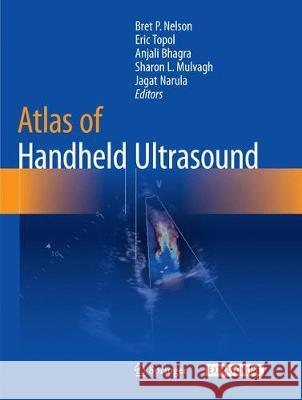Atlas of Handheld Ultrasound » książka



Atlas of Handheld Ultrasound
ISBN-13: 9783030088712 / Angielski / Miękka / 2018 / 213 str.
Atlas of Handheld Ultrasound
ISBN-13: 9783030088712 / Angielski / Miękka / 2018 / 213 str.
(netto: 805,10 VAT: 5%)
Najniższa cena z 30 dni: 809,63
ok. 22 dni roboczych.
Darmowa dostawa!
"I believe that it is squarely aimed at the non-specialist, not just doctors, but also nurses, physiotherapists, and indeed anyone who wishes to incorporate ultrasound into their routine clinical practice. ... I feel that this book would be useful as an introductory text for the busy clinician who is learning POCUS." (Dan Bell, RAD Magazine, August, 2019)
"This book might be of relatively modest interest to anesthesiologists. ... the Atlas of Handheld Ultrasonography is a useful reference for point-of-care ultrasonography in the critical care and emergency medicine settings. To this end, the book's image-based style lends itself well to an e-book format, to be consulted at the point of care." (Marco Baciarello, Anesthesia & Analgesia, Vol. 128 (5), May, 2019)
Dr. Bret P. Nelson has lectured on ultrasound throughout the world, and has taught curricula in handheld ultrasound to countless medical students, residents and faculty from multiple medical specialties. He coauthored the Manual of Emergency and Critical Care Ultrasound as well as Emergency Medicine Oral Board Review Illustrated. He is Chair of the AIUM Emergency and Critical Care Community of Practice and a member of the WINFOCUS Board of Directors. He is among the national faculty for the American College of Chest Physicians’ ultrasonography course, the Difficult Airway Course, and has led a number of CME conferences on basic and advanced ultrasound.
Dr. Sharon L. Mulvagh is Professor of Medicine, Dalhousie University, Halifax Nova Scotia and Emeritus Professor, Mayo College of Medicine. She is a clinical and investigative cardiologist recognized nationally and internationally for her research and education in heart disease in women, and noninvasive cardiovascular imaging, specifically echocardiographic imaging using newer technologies including contrast echocardiography, myocardial perfusion imaging and point of care ultrasound.
Dr. Eric Topol is the Founder and Director of the Scripps Translational Science Institute (STSI), Professor, Molecular Medicine, and Executive Vice-President of The Scripps Research Institute (TSRI). As a researcher, he has published over 1100 peer-reviewed articles, with more than 185,000 citations, elected to the National Academy of Medicine, and is one of the top 10 most cited researchers in medicine (Thomson Reuters ISI, “Doctor of the Decade”). His principal scientific focus has been on the genomic and digital tools to individualize medicine—and the power that brings to individuals to drive the future of medicine.In 2016, Topol was awarded a $207M grant from the NIH to lead a significant part of the Precision Medicine Initiative, a prospective research program that aims to enroll 1 million participants in the US. Prior to coming to lead Scripps STSI in 2007, for which he is the principal investigator of a flagship $33M NIH grant, he led the Cleveland Clinic to become the #1 center for heart care and was the founder of a new medical school there. He has been voted as the #1 most Influential physician leader in the United States in a national poll conducted by Modern Healthcare. Besides editing several textbooks, he has published 2 bestseller books on the future of medicine: The Creative Destruction of Medicine and The Patient Will See You Now.
1997-2026 DolnySlask.com Agencja Internetowa
KrainaKsiazek.PL - Księgarnia Internetowa









